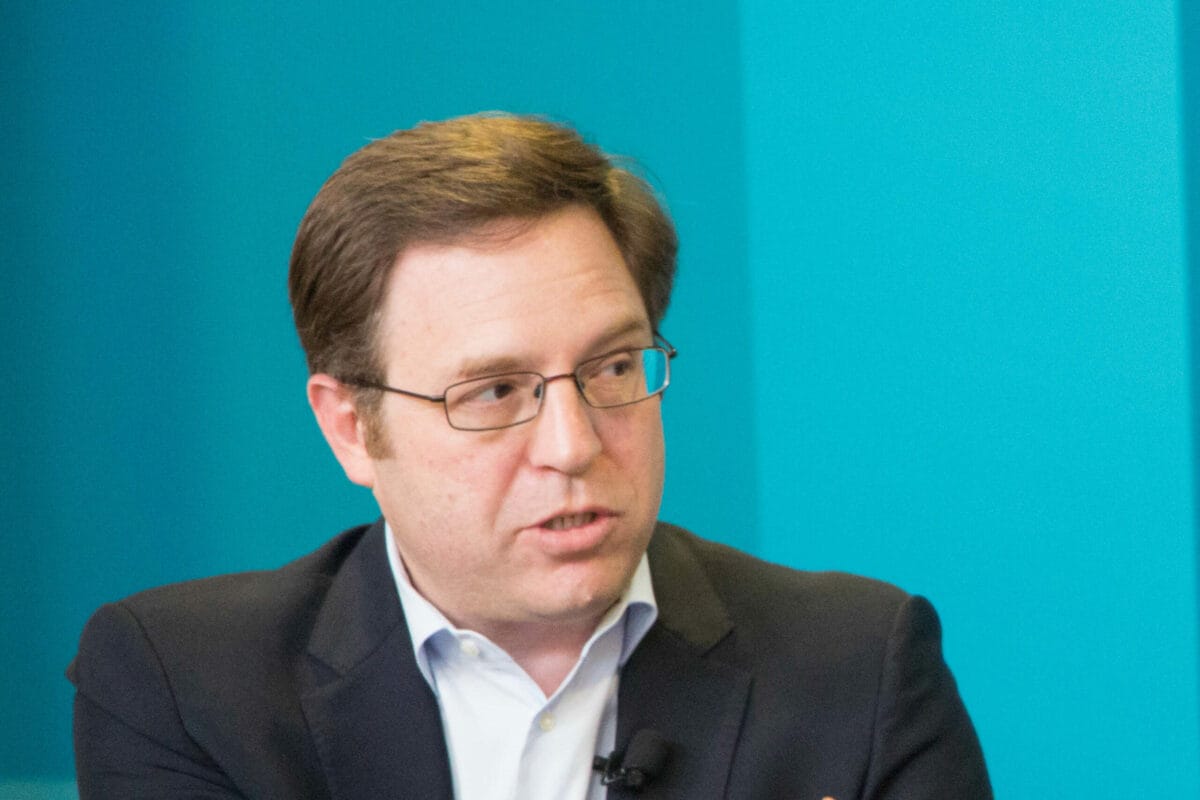Apple and Google Called ‘Gatekeepers,’ Huawei Trade Restrictions, Meta’s Antitrust Win
The NTIA claims that Apple and Google take advantage of their app stores to put unfair limitations on their competitors.
Em McPhie

February 1, 2023 — Apple and Google are “gatekeepers” of the mobile app market, placing unfair limitations on competitors and ultimately harming consumers, according to a report issued Wednesday by the Commerce Department’s National Telecommunications and Information Administration.
The app market is almost entirely confined to the app stores run by Apple and Google, and the report alleges that these companies create unnecessary hurdles for developers — such as restricting app functionality and imposing “slow and opaque review processes.”
The NTIA’s recommendations, issued at the direction of President Joe Biden’s 2021 executive order on competition, include prohibiting self-preferential treatment from app store operators. The report also recommends that consumers be allowed to set their own default apps, delete pre-installed apps and have access to alternative mobile app stores.
Many of the recommendations echo the Open App Markets Act, a bill that gained significant bipartisan support in the last Congress but was not ultimately included in the year-end spending bill.
Alan Davidson, head of the NTIA, said that the agency’s recommendations would “make the app ecosystem more fair and innovative for everyone.”
“This report identifies important ways we can promote competition and innovation in the app market, which will benefit consumers, startups, and small businesses,” said Bharat Ramamurti, deputy director of the White House’s National Economic Council.
Apple and Google have previously argued that their stores allow users to access millions of apps while being protected from predatory apps and spam.
The report fails to “grapple with the acknowledged risks regarding consumer privacy, security and content moderation,” said Krisztian Katona, vice president of global competition and regulatory policy for the Computer and Communications Industry Association, which counts Google and Apple as members.
Further trade restrictions for Huawei
The Biden administration has blocked export license renewals for certain U.S. companies that provide essential components to Chinese tech giant Huawei, and some officials are reportedly advocating for a complete ban on sales to the company.
The move is “contrary to the principles of market economy” and constitutes “blatant technological hegemony,” said Mao Ning, a spokesperson for the Chinese Foreign Ministry.
Many lawmakers on both sides of the aisle have raised concerns over alleged threats posed by Chinese technology to national security. At a Wednesday hearing about technological competition, Rep. Gus Bilirakis, R-Fla., called China “the greatest threat to our country right now.”
However, some industry experts argue that China is being unfairly targeted for broad digital privacy risks that are not actually country-specific.
Amid escalating tensions between the U.S. and China, TikTok CEO Shou Zi Chew is set to testify before the House Energy and Commerce Committee in March, where he will respond to committee members’ accusations that the app “knowingly allowed the ability for the Chinese Communist Party to access American user data.”
Meta reportedly beats FTC antitrust challenge
A federal judge on Wednesday denied a request from the Federal Trade Commission to temporarily halt Meta’s acquisition of a virtual reality startup, according to Bloomberg, citing anonymous sources.
The FTC originally sued Meta in July, claiming the purchase would allow the company to dominate the emerging virtual reality industry. The case was unusual in that it focused on future competition, rather than the existing marketplace.
The decision marks a major loss for FTC Chair Lina Khan’s crusade against Big Tech monopolies. Under the direction of Khan, the agency has taken aggressive antitrust action against several tech companies, including a high-profile suit against Microsoft’s acquisition of Activision Blizzard.
The agency now has a week to decide whether to appeal the ruling before the deal closes on Feb. 7.











Member discussion